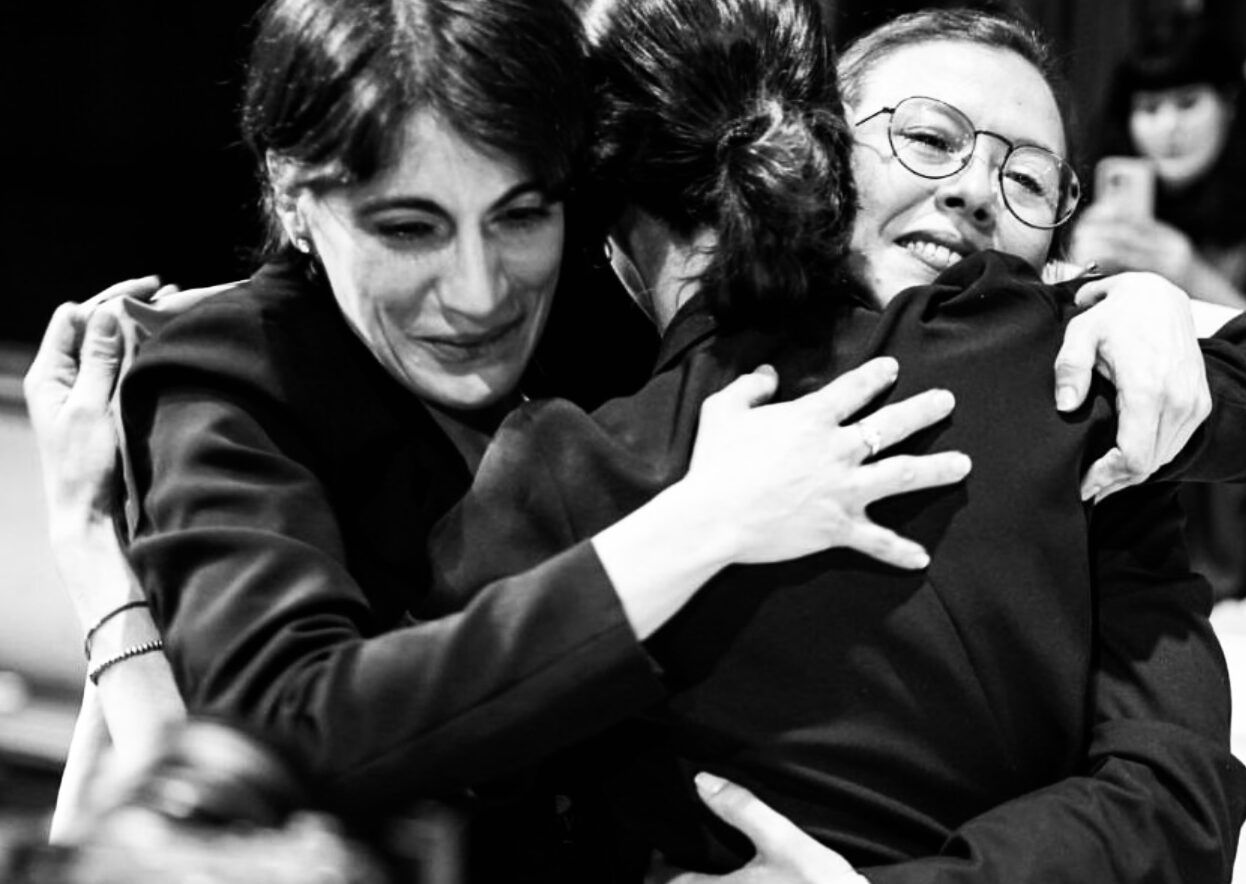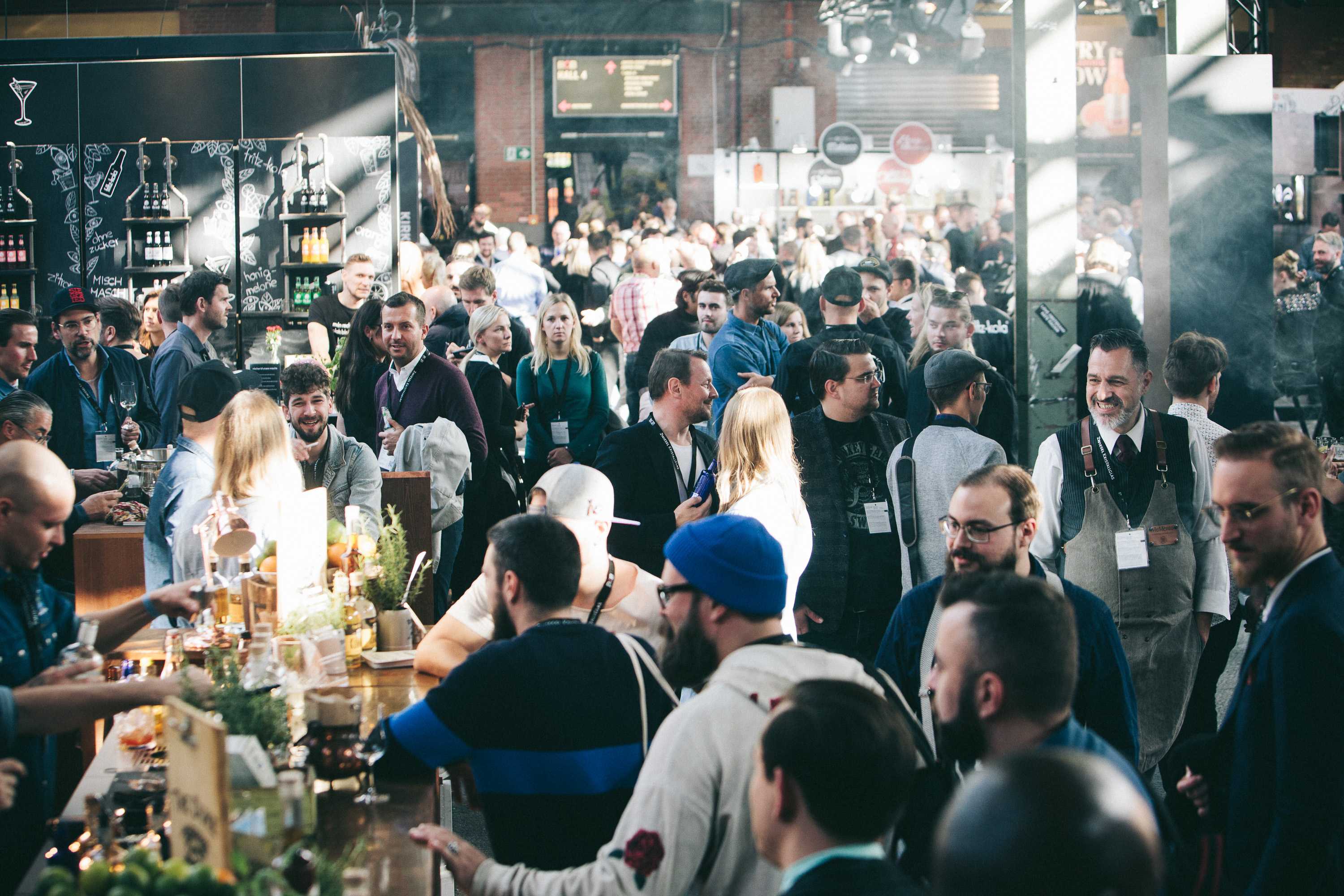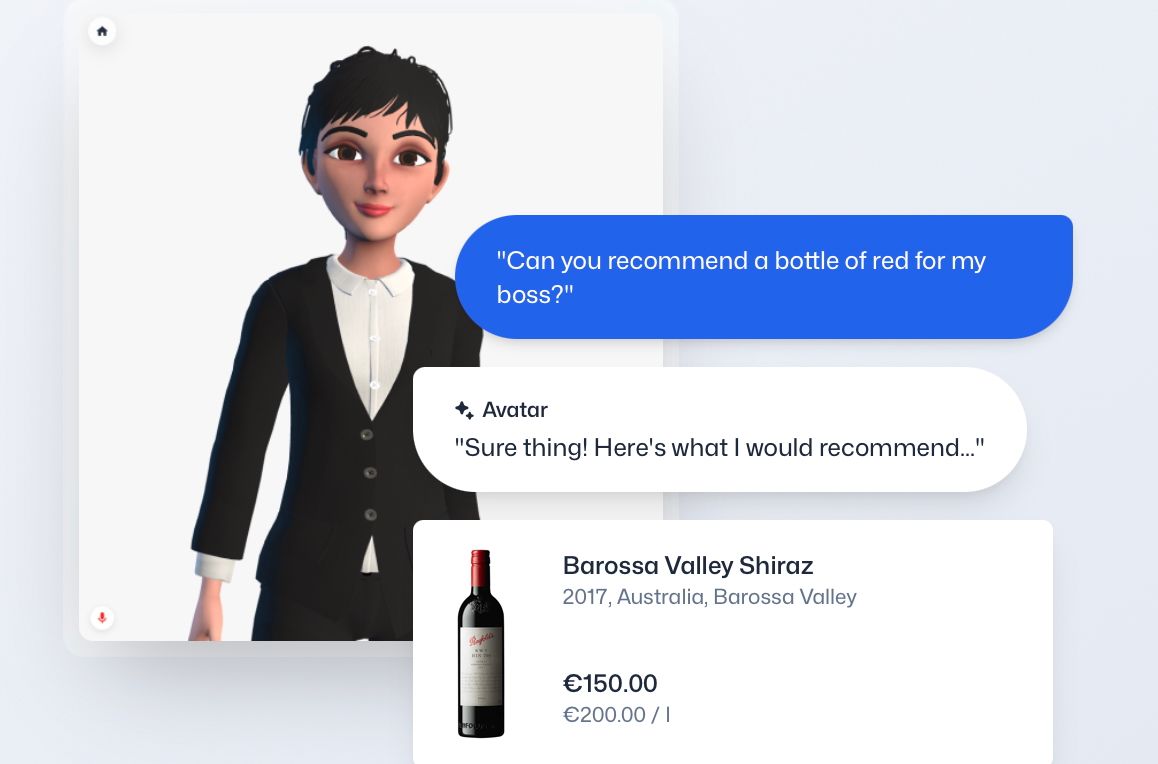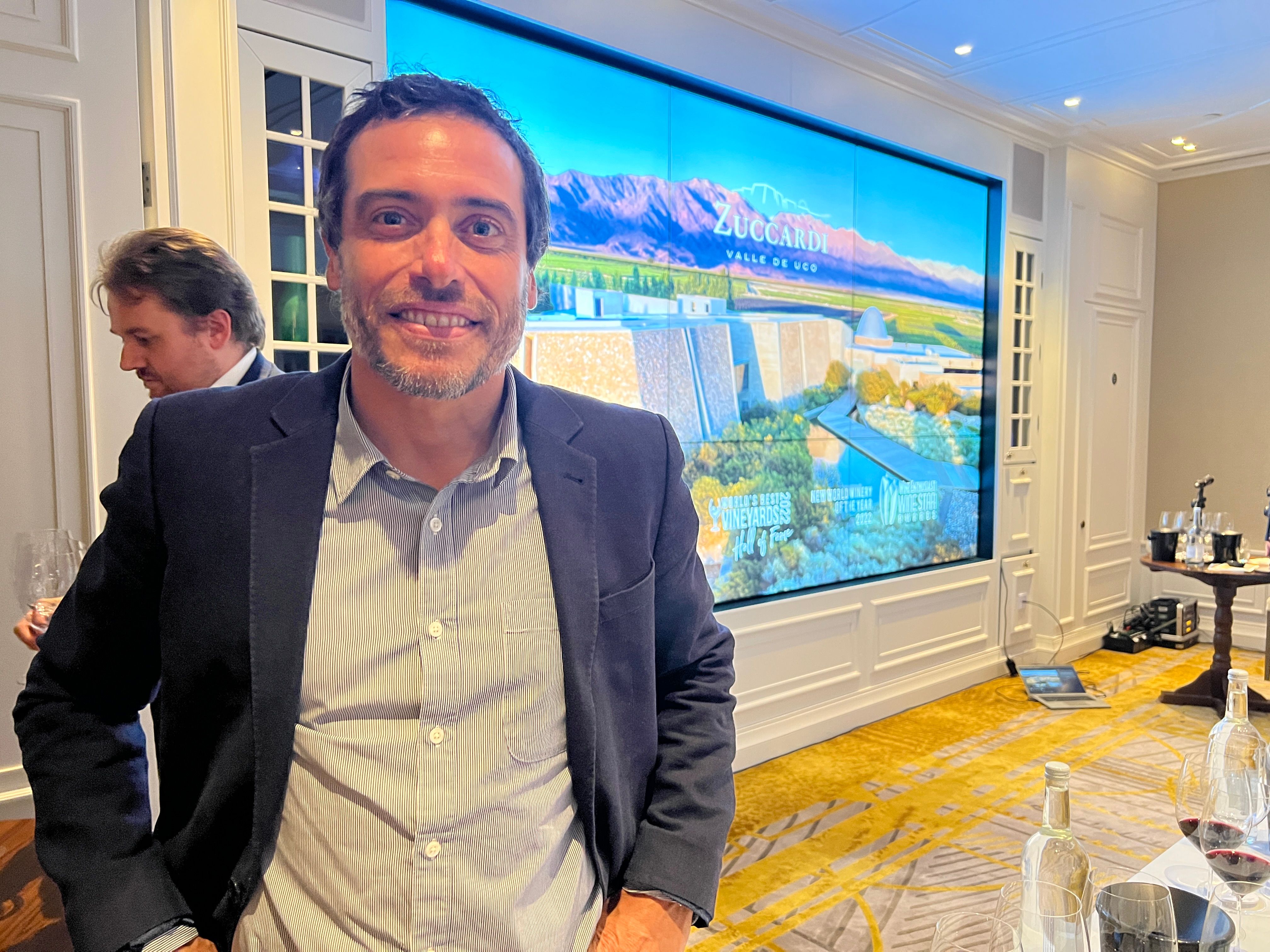“So it is with wine communication in all of its many forms. And so it is with opinions… we may not share them but let’s allow one another’s to co-exist without venomous reprisal,” writes Garnett.
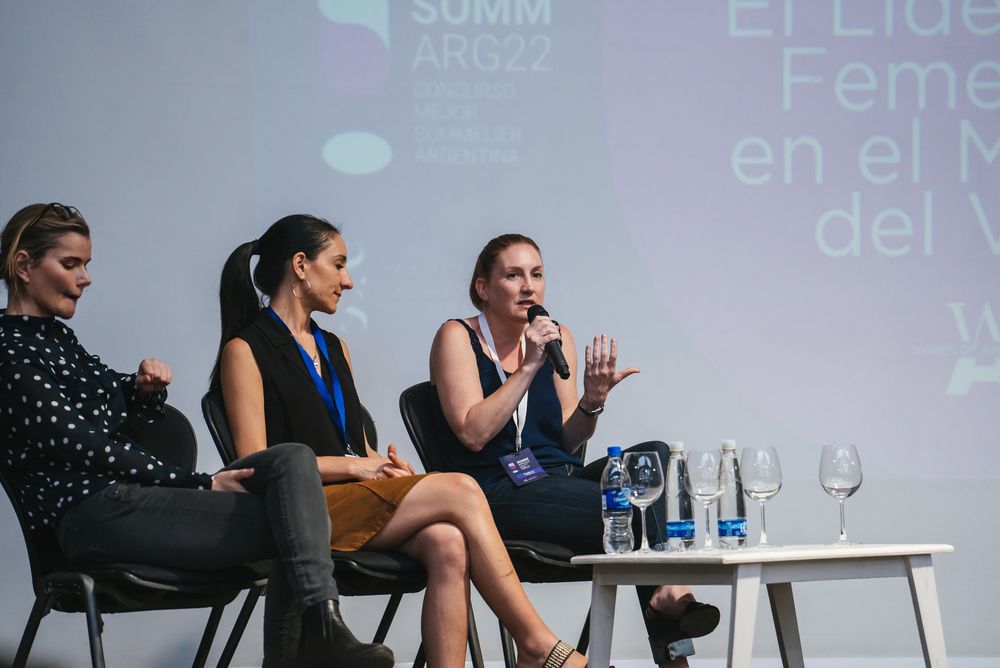
Women in wine at the Wines of Argentina symposium: Lisse Garnett, Valeria Gamper, Audrey Doré (l-r)
‘Women in wine’, a phrase that flows so easily across the tongue, a buzz topic on every blog and in every PR in-box. But what does it mean to be a woman in our trade and, more importantly, are we very nice to one another?
I’m in Mendoza, Argentina, where I have been invited by Wines of Argentina (WOFA) to speak to an audience of sommeliers about what it means to be a woman in wine. I’m in impressive company: Sarah Jane Evans MW; Argentine’s Valeria Gamper who won the ASI Best Somm of the Americas award; Jessica Vargas from Wine Enthusiast; and Audrey Doré of El Celler de Can Roca in Girona are also speaking.
Magdalena Pesce, the general manager of WOFA, has signed the organisation up to the United Nations Principles for the Empowerment of Women which includes some pretty reasonable demands for balanced representation, responsible communication, egalitarianism in pay and a lack of workplace harassment and violence. This inevitably has got me thinking. About my past, about my hospitality ‘journey’ and about the way I have treated and been treated by my fellow and opposite sex.
The need for a broad church
I haven’t always been the best friend to my kind. I wrote a piece about influencers for the Spectator to which my editor attached an image of the exceptionally beautiful Georgie Fenn. New to Instagram and heavily influenced by a male colleague’s disgust for algorithms I wrote a pretty scathing, partially tongue-in-cheek series of pieces about the age-old phenomenon of using sex to sell wine.
Industry women went nuts – I was vitriolically attacked by many on Twitter (I was not on it then), in particular by a MW (female) to whom I wrote a cogent letter of reply. Happy to slag me off as ‘an enemy to my sex’ in public she nevertheless did not lower herself to engage in private. The male colleague who inspired, loved and subbed the primary piece did not deign to champion me on Twitter either, preferring, somewhat spinelessly, to distance himself and maniacally people (sorry) ‘women please’ instead.
It was Georgie Fenn who restored my belief in female solidarity and taught me a valuable lesson. We met, by chance at a masterclass where she shook my hand and willingly joined me and Francisco Baettig for lunch. I’ve since met The British Bouchon, Hannah Crosbie and many other female influencers – highly successful wine communicators well capable of cogent debate.
It does, I have learned, take all forms of communication to reach audiences.
It seems I needed to take a leaf out of History of an Unusual Wine Company, Doug Wregg’s account of setting up natural wine pioneers, Les Caves de Pyrene. When labelled a natural fundamentalist over his championing of the ‘commercial con’ of natural wine at The Natural Wine Fair in 2011, Wregg calmly explained that the wine church is broad and all might co-exist.
So it is with wine communication in all of its many forms. And so it is with opinions… we may not share them but let’s allow one another’s to co-exist without venomous reprisal.
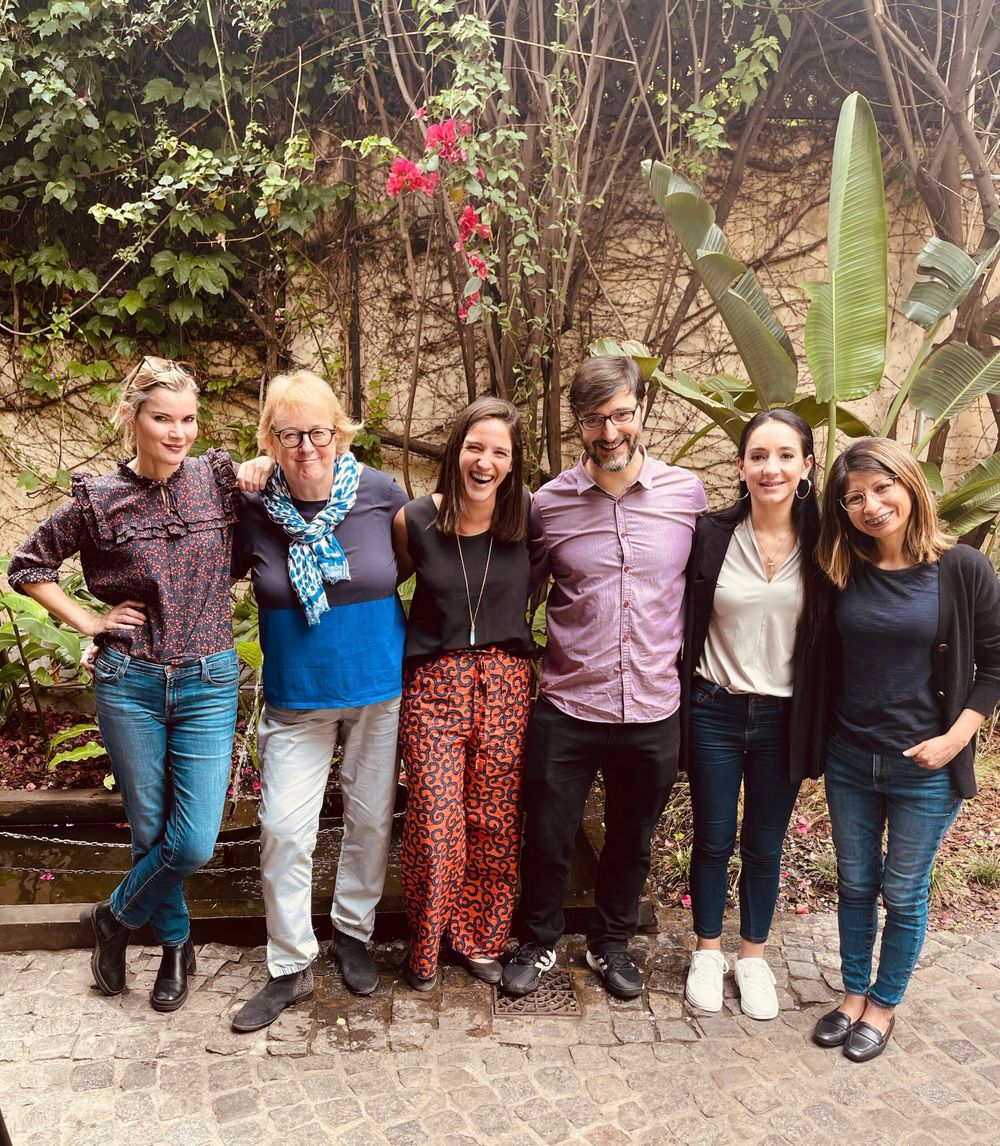
Lisse Garnett, Sarah Jane Evans MW, Yael Doctorovich (WOFA) Jaoquin Hildalgo (Vinous), Valeria Gamper, Jessica Vargas (l-r)
So where did hospitality begin for me?
My mother was a waitress and a single parent of six – so I suppose it began there. Her father, a Polish pilot who escaped the Nazis, had been severely injured by a bullet to the head and ended his life as a caretaker in a Polish convent near Northampton. Funds were limited so my mother, like millions before her, took the only job she could to support her family. I followed suit and began waitressing aged fourteen, moving ever onwards through pubs, bars and hotels and importers.
Hospitality has since funded two journalism degrees, a Masters and a separation I hope will end in divorce. Hospitality has given me a proxy family, my very best friends and numerous nights of enjoyable public service. It even got me my first job in television – through contacts made serving pizza.
At nineteen, I left for Italy, not really knowing much about it apart from what I’d seen on Brideshead Revisited. Naïve and green I’d flown to Firenze with no clue it was actually the same place as Florence, I had a place to stay, a record collection, a dictionary and little else. My first interview was at a casino on the outer periphery of the city. I was buzzed through a side door into a white hall and shown into a space that revealed itself to be part office, part casting couch.
My host, a then clothed Grandad aged man, had buzzed me in and vanished, reappearing clad only in a white towelling robe and proffering a silver salver of strawberries complete with a bottle of something sparkling. I voiced my dismay and left, fortunately finding my way out. I don’t remember how I got home but I do remember him plaintively calling after me, ‘But I have a beautiful fax machine’.
This kind of situation was fairly commonplace in Italy. Whilst working as a nanny, fathers of other children would routinely place their hand on my leg and proposition me for sex, it was the same at the bar. One night I awoke having crashed on a friend’s sofa in Florence after a late finish to find an English Lord pleasuring himself above me. Such is the life of the dispossessed unprotected young female abroad. Or was. I hope so many things have changed.
Exploitation when far from home and reliant on work to supply, not only income but bed and board too, was commonplace back then. One five-star hotel I worked in (under a female boss) near Elba treated its live-in foreign staff appallingly. We worked from 6am stacking sunbeds on the private beach until 1am on wash-up. A pair of us staff took off in the dead of night – a Basque and a Brit – too fearful and insecure about our rights to confront injustice, instead choosing to ride the night bus to Florence and test our wits there.
We must try harder
I’m not entirely comfortable with individual women who promote themselves as the public face of female empowerment either, those who tag reputable female causes for personal traction in social media and also in inappropriate contexts – during a 13-hour vintage vertical lunch, for example.
But surely we can do far better for our sex than watch unctuous trade insiders get wankered on vintage verticals?
We wine communicators all need attention to thrive and to get limited lucrative work – an ever-higher profile and competition is encouraged – huge social media followings mean invites to speak and placement on trips but there are those who utilise their status to gain personal affirmation.
Men and women that cultivate affirmation and a position of power over substance ought not be trusted in my humble opinion. Witnessing male industry individuals gain the trust of young girls merely to furnish their ‘wank bank’ is galling, but the world was ever thus. Do women do it too? Yes I think we do. Perhaps it’s worse in a trade where booze, hotels, live-in accommodation and the odd foreign trip is not unusual.
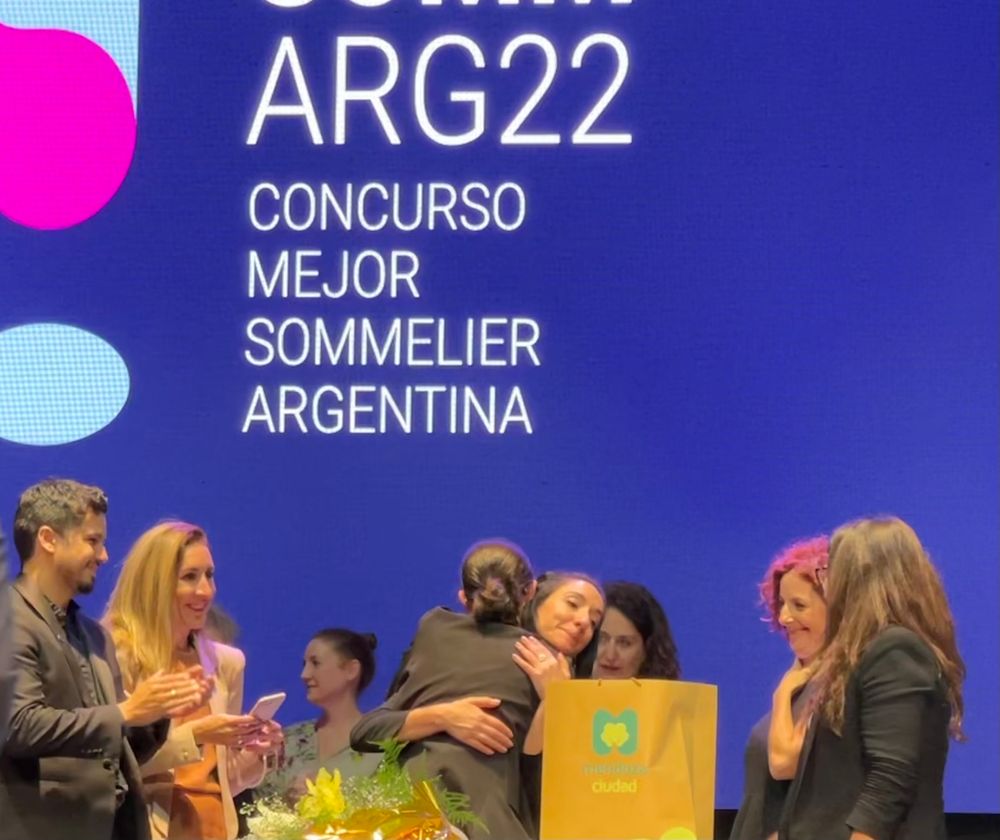
Best Argentine sommelier Andy Donadio embracing her mentor and best friend Valeria Gamper, Best Somm of the Americas 2022 and Best Somm Argentina 2019
Empowerment in Mendoza
And what of that conservatoire – the Mendozan address? For this is a worthy and credible cause – equality is a given (the base line for all) – and we must show solidarity to our sex in this. Domestic violence and coercion thrives on the silence of women. I’ve seen it first hand and it is hard and potentially libellous to speak out.
I was so privileged to share the stage with these women. As an ex-broadcaster, surely I could hold my cause? No, dear readers, for I was rubbish. The only individual on that stage unable to converse in Spanish and I trembled, wobbled and fumbled. World class female sommeliers, erudite MWs and young women who have conquered the prejudice of class and race are far better speakers than me. But I stood with them in spirit.
As I left the stage a young female sommelier from Argentina held out her arms and enclosed me in a hug. And just like the three fantastic women I saw come first, second and third at the Argentinian Sommelier 2022 Championship earlier that day, I wept. For there is nothing more noble nor powerful than championing your sex and feeling their sweet collective arms embrace.
